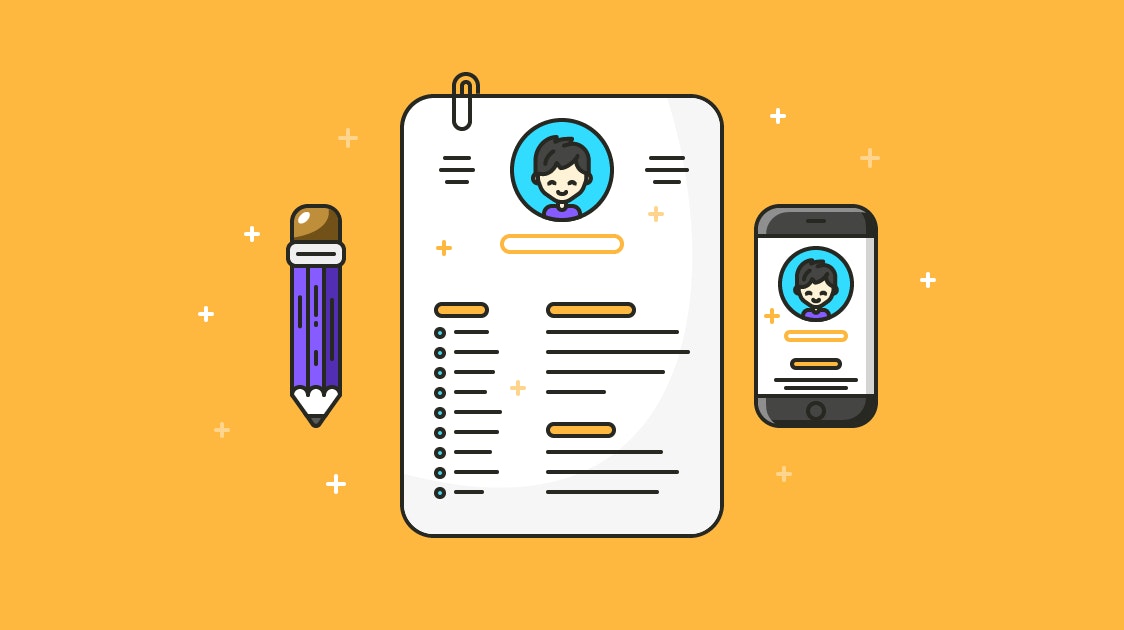How to Write the Perfect Customer Service Resume


Your resume is only one part of an outstanding application, but as someone who has hired many customer service professionals, I can tell you one thing: A good resume does matter.
Customer service roles today have a new definition, and companies are (finally) waking up to see the value of investing in these positions. For roles like these, your application has to be a lot better than firing whatever Microsoft Word template out of a shotgun at every job listing with “customer” or “service” in the title.
You’ll never win yourself a job purely on the strength of your resume, but a poorly done resume can absolutely lose you a job. Getting your resume in order and avoiding the most common mistakes isn’t hard, but it does require some planning and a little effort.
Elements of a great customer service resume
The primary role of your resume is to get you through the initial screening and into the next stage of selection. Imagine a busy hiring manager who has more qualified applicants than she can possibly interview. She needs to cull that list down to a manageable size, so she’s looking for standouts, good and bad.
Preparing your resume
Use a clean, scannable design. Fun fonts and unique layouts will stand out — but rarely in a positive way. Keep your layout simple and use headings and emphasis to create visual clarity. Your design should help readers spot the highlights in those first few seconds.
Update your contact details. It is surprising how frequently people leave old phone numbers or email addresses on their resumes.
Check your spelling and grammar. Take advantage of a grammar checker, but also have a friend proofread it for you. It is so easy to misread your own writing! (In my hiring career I once received a resume that touted the applicant’s “attention to detial,” a phrase that I will now never forget.)
Write an honest representation of your work history. Avoid the temptation to exaggerate your titles or accomplishments. It never pays in the long run.
Explain gaps in your work history. It’s fine to have gaps, but leaving them unexplained lets the reader imagine a (potentially negative) explanation. Saying “Travelled in Vietnam for six months,” for example, takes out the guesswork.
Be concise. Rarely will your participation in your high school pageant be relevant in your adult customer service career. Consider leaving off older roles that won’t strengthen your case for this current opportunity.
Resources for resume design
Be warned: Searching the internet for resume design is a dangerous game. The search results are a flood of “fancy” templates and “professional designs” that are best browsed in an incognito window to avoid future shame.
Knock 'em Dead Resumes & Resume Magic
Two well-reviewed books on resume design are Knock 'em Dead Resumes and Resume Magic. Both books include copious examples with guidance on how to improve your own documents.
Typography for Lawyers
Justin Seymour, Help Scout’s Head of Support, recommends Typography for Lawyers for creating plain documents with eye-pleasing font sizes and margins.
The Non-Designer's Design Book
For building up your general design skills, look to The Non-Designer's Design Book. It’s worth investing time to learn the building blocks of graphic design. It will not only pay off for your resume, but also if you’re creating knowledge base articles and guides for your customers.
Writing customer service resumes that work
Let’s say you’re trying to move from a retail customer service role into an online customer support role. How can you present your skills and experience effectively and honestly? Start by carefully reading the job description, highlighting for yourself the phrases that the company is using.
Now you can adjust your description of your experience to highlight the ways in which your experience matches what the company is looking for. Remember: This will only work if it’s true; most good interviewers will dig into the same areas during the interview and discover the reality.
Don’t rely on job titles to tell your story. Be specific about what you did in those roles that will transfer to this new job.
Sample scenarios
Let’s say you have had significant experience as a retail store employee and you’re looking to move into online customer service. You should draw out different elements of your retail experience, depending on the phrases used in the job advertisement you are applying to.
You’ll generally only have a sentence or two to work with, so make the most of them. Use the specific words mentioned in the job description, and don’t waste space describing generic duties that people would assume you to have done.
Here are a few great examples, along with some notes on what's great about each example:
Game World — Shift Manager
February 2015 - Present
As shift manager, I was responsible for handling all problematic and upset customers as an escalation point for other staff. Working with the store manager, I also developed written training materials for new junior staff on dealing with shoplifters.
Be clear about how your responsibilities and actions map to this new role, focusing on what you personally did.
If you’re transitioning to an online role, the ability to write clear instructions could be very valuable.
Game World — Shift Manager
February 2015 - Present
As shift manager, I was responsible for organizing the work shifts of 11 full-time and casual staff, and I also managed daily inventory reporting. This work was balanced with direct customer service under a tight schedule.
Use the phrase from the job description, and also include real numbers where you can. Managing a staff of 11 is much more challenging than managing a staff of two, so use those numbers.
Make it clear that you were multi-tasking effectively under time pressure.
Game World — Shift Manager
February 2015 - Present
As shift manager, I worked without direct supervision, opening and closing the store and managing staff throughout the day. I was also responsible for visual merchandising, and one of my shelf layouts was adopted in all Game World stores.
Again, mirror the specific language of the job description.
Provide specific examples of unsupervised responsibility.
Show self-motivation successfully applied.
What customer service managers look for in a resume
We asked a few customer service managers to tell us what they look for in a resume. Here are the tips they provided:
“Tell me a story. Bullet points don’t stand out; everyone has bullet points. But a thoughtful, well-written plug about who you are, where you’ve come from, and what you’ve accomplished goes the distance.”

Justin Seymour
Head of Support at Help Scout
“If you have typos, poor grammar, etc., I will move on without hesitation. Given that all of our communications are written, great writing and attention to detail are a must!”

Jenn Southan
Diriector of customer Support at TeamSnap
“Your resume’s brevity matters because a hiring team will only maybe look at the resume, and if they do, then maybe they’ll go past page one. The more complete page one is, the better chance you have of an accurate first impression.”

Andrew Spittle
Happiness Engineer
“I look for personality and strong communication skills; neither can be implemented into a resume by example. Customer support is so communication heavy, I won’t call someone in for an interview just based off a resume alone.”

Brittany Ferguson
Director of Customer Happiness at Fracture
“I look at how the resume has been crafted. The formatting, the clarity, simplicity, the flow of thoughts — are you able to summarize everything about yourself/play out your story in a resume? Isn’t that what support’s all about? Being able to play out your product knowledge in a simple, clear, and neat way for the customer.”

Demetrius Pais
Happiness Champion at Crowdfire
Go get that customer service job!
Now take your beautiful, concise, and solid resume and start looking for that perfect role! Before you apply for any positions, take the time to review your resume and adjust it to highlight how you fit that particular job.
Your resume is only part of the answer, of course, so you should also spend some time writing a great cover letter. Most important of all, remember that the best roles are often never advertised. By being involved in the community and developing a reputation, you may have potential employers reaching out to you directly.

